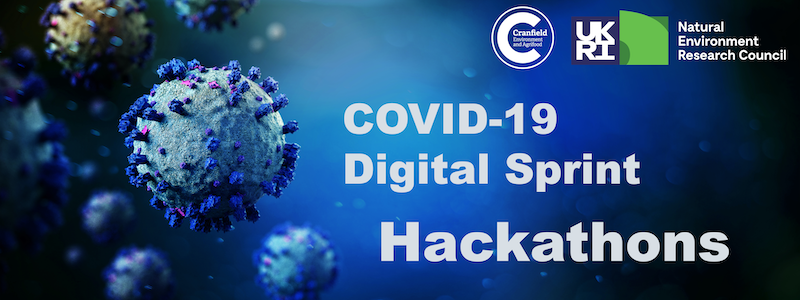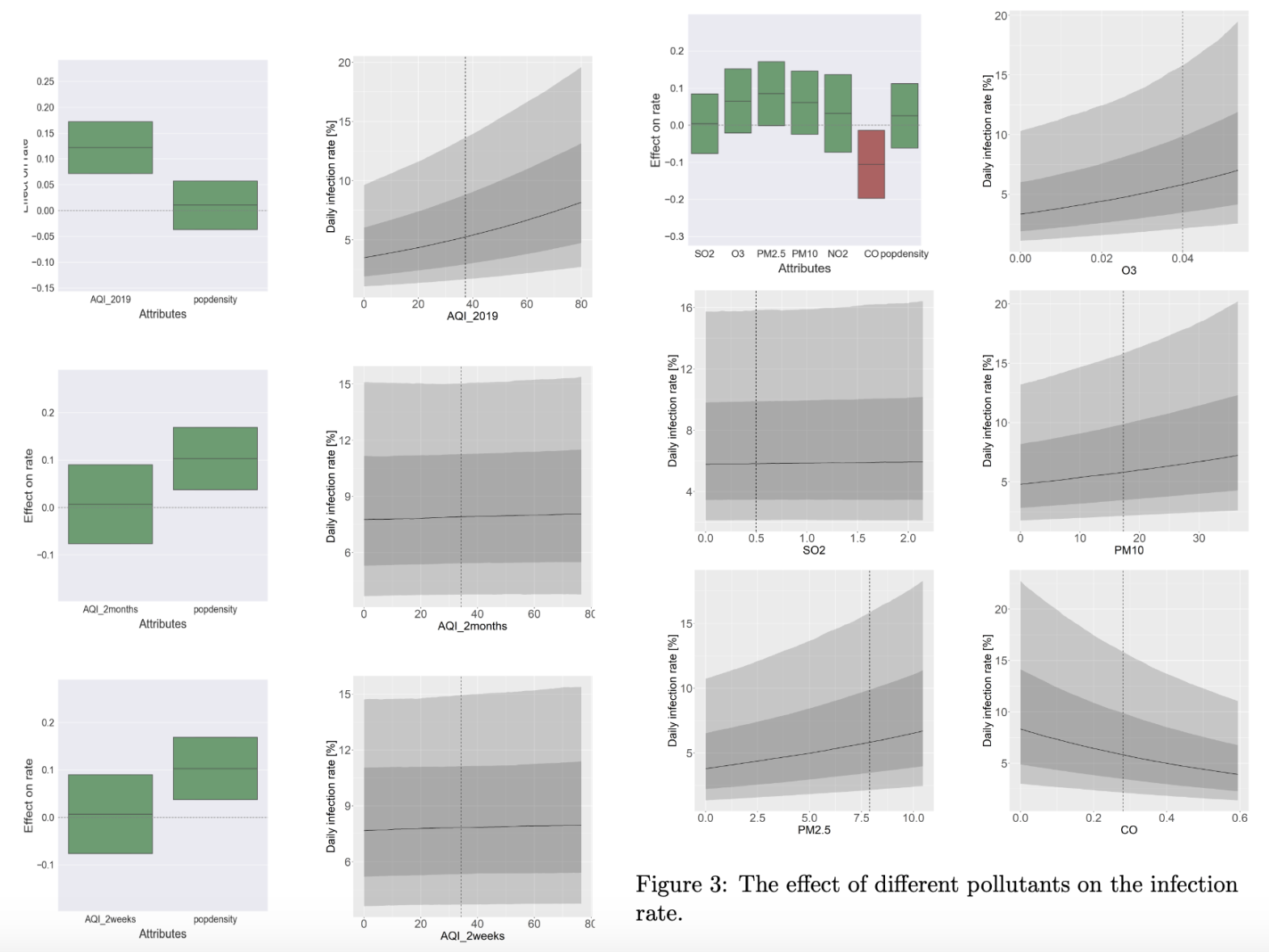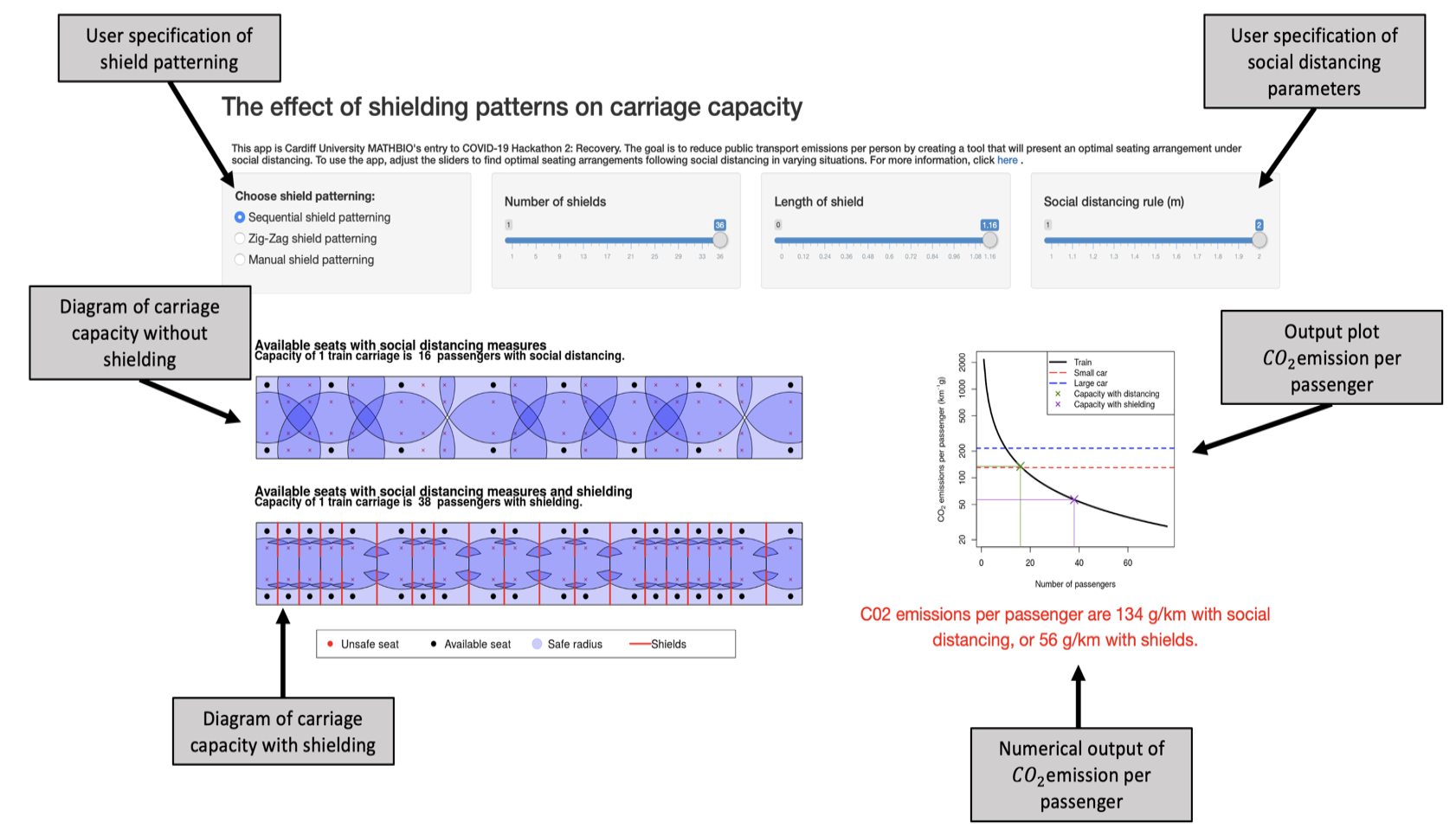NERC COVID-19 Digital Sprint – Hackathon series
13/07/2020

We have now passed halfway through our NERC COVID-19 ‘Digital Sprint’ hackathon activities, and there are some fascinating outputs emerging from this!
Cranfield University’s Ron Corstanje and Stephen Hallett act together as the Natural Environment Research Council (NERC)s ‘Digital Environment Champions’, helping drive forward NERC’s ambitious programme of funded research projects around ‘Constructing a Digital Environment’ – described fully on the programme web portal at https://digitalenvironment.org. The focus of this initiative overall is to develop and apply techniques from data science and computer science to the field of the environmental sciences – developing best practice data-driven approaches to addressing some of the pressing complex environmental issues of today.
Following the COVID-19 pandemic, and seeking to better understand the full environmental consequences of the outbreak, one important part of this programme has been the development of a series of Hackathons. These events, open to all comers, were developed to encourage true multidisciplinary team approaches.
The Digital Sprint commenced with an event that became known as the ‘Ideathon‘, whereby over 80 national and international experts, distinguished scientists and technologists were invited to join an online event hosted by NERC, to explore and tease out the areas where there were particular environmental questions and concerns arising as a consequence of COVID-19, and where data science and informatics inputs could really contribute. This was a most informative and stimulating day, leading to a wide range of themes emerging. It was then a real challenge to home in on a top ranking of these ideas to inform the subsequent hackathons.

The outcome of this exercise allowed us to organise four successive hackathon events. The first event focussed on air quality, and addressed whether there is a correlation between air quality and the incidence and severity of COVID-19 infection, considering what the air quality threshold might be in order to meet to improve individual outcomes. The second event then concerned ‘Recovery‘, focussing on identifying both the positive and negative aspects of the lockdown and recovery measures on meeting Paris and net zero targets, using multivariate signals to highlight these impacts and their inter-relationships to inform decision making. The third event focussed on resilient ecosystems, considering whether/how a healthy natural environment might modulate the spread of COVID-19, and whether changed human behaviours are having an impact on this. A concern was how we might then use this insight to improve health outcomes, and provide evidence-based support for decision-makers and individuals to mitigate their environmental impact and reduce their personal health risk. Finally, the fourth event took a rather different approach of visualising personal risks of COVID-19, seeking to develop solutions able to turn data into actionable information in developing unique and novel ways of communicating risk-based COVID-19 data for environmental solutions. Here, we took the town of Bedford, UK and the surrounding area for the case study.

We have currently completed the first three events, and the final event is currently underway. There have been some truly inspirational and insightful entries to the hackathons, and the winners from each event to date have been given cash awards to mark their success. We have gathered up all the participating entries to date on our CDE programme Github page.
The true impact and legacy of these hackathon events is yet to take shape, but there will be a fantastic set of materials for interested parties to consider and we hope a trigger for some research proposals from the participants seeking to develop their science further.
Categories & Tags:
Leave a comment on this post:
You might also like…
Keren Tuv: My Cranfield experience studying Renewable Energy
Hello, my name is Keren, I am from London, UK, and I am studying Renewable Energy MSc. My journey to discovering Cranfield University began when I first decided to return to academia to pursue ...
3D Metal Manufacturing in space: A look into the future
David Rico Sierra, Research Fellow in Additive Manufacturing, was recently involved in an exciting project to manufacture parts using 3D printers in space. Here he reflects on his time working with Airbus in Toulouse… ...
A Legacy of Courage: From India to Britain, Three Generations Find Their Home
My story begins with my grandfather, who plucked up the courage to travel aboard at the age of 22 and start a new life in the UK. I don’t think he would have thought that ...
Cranfield to JLR: mastering mechatronics for a dream career
My name is Jerin Tom, and in 2023 I graduated from Cranfield with an MSc in Automotive Mechatronics. Originally from India, I've always been fascinated by the world of automobiles. Why Cranfield and the ...
Bringing the vision of advanced air mobility closer to reality
Experts at Cranfield University led by Professor Antonios Tsourdos, Head of the Autonomous and Cyber-Physical Systems Centre, are part of the Air Mobility Ecosystem Consortium (AMEC), which aims to demonstrate the commercial and operational ...
Using grey literature in your research: A short guide
As you research and write your thesis, you might come across, or be looking for, ‘grey literature’. This is quite simply material that is either unpublished, or published but not in a commercial form. Types ...






